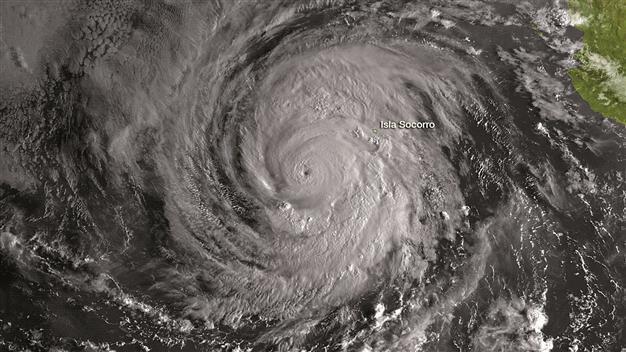Climate events are not proof of global warming
ISTANBUL - Hürriyet Daily News

Extreme weather does not prove the existence of global warming, says scientists. AFP photo
Extreme weather does not prove the existence of global warming, but climate change is likely to exaggerate it by messing with ocean currents, providing extra heat to form tornadoes, bolstering heat waves, lengthening droughts and causing more precipitation and flooding, according to a recent article in Scientific American.“A changing climate leads to changes in the frequency, intensity, spatial extent, duration and timing of extreme weather and climate events, and can result in unprecedented extreme weather and climate events,” reports the Intergovernmental Panel on Climate Change (IPCC). The IPCC is an independent group of leading climate scientists convened by the United Nations to provide the world with a clear scientific view on the current state of knowledge in climate change and its potential environmental and socio-economic impacts.
While most scientists don’t dispute the link between global warming and extreme weather, the once skeptical public is now starting to come around — especially following 2011 when floods, droughts, heat waves and tornadoes took a heavy toll on the United States. According to a poll conducted by researchers on Yale University’s Project on Climate Change Communication, four out of five Americans reported personally experiencing one or more types of extreme weather or a natural disaster in 2011.
The same report claimed that more than a third of respondents were personally harmed either a great deal or a moderate amount by one or more of these events. A large majority of Americans believe that global warming made several high profile extreme weather events worse, including record high summer temperatures nationwide, droughts in Texas and Oklahoma, catastrophic Mississippi River flooding, Hurricane Irene and an unusually warm winter.
The IPCC wants world leaders to err on the side of caution in preparing their citizens for extreme weather events that will likely become more frequent. Earlier this year they released a report entitled “Managing the Risks of Extreme Events and Disasters to Advance Climate Change Adaptation” to help policymakers do just that. The report is considered a must read in coastal, arid and other especially vulnerable areas.
















